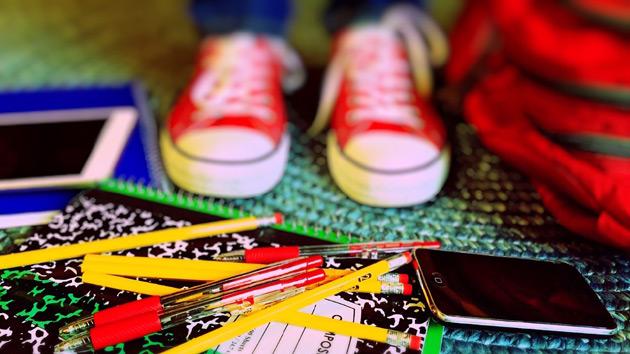Czech Gov't human rights report finds Romani children are still discriminated against in education

Children of Romani origin continue to be discriminated against in their access to education in the Czech Republic even after the launch of inclusive measures – while they are no longer being recommended for enrolment into the so-called “special schools”, they are frequently taught separately from non-Romani children in “Romani” classes or schools. That is just one finding of the annual report on the state of human rights in the Czech Republic for last year that the Czech Government is scheduled to discuss on Monday.
The document also warns of violence against children, a high number of boys and girls living in state-run children’s homes, and insufficient respect for the opinions of children. Among other matters the report also points to the gap between men’s and women’s salaries and the fact that members of minority groups do not enjoy equal access to housing.
“After the launch of inclusion, the problem of some children being excluded from common education is beginning to appear in a different way. They are no longer being labeled as disabled or disadvantaged and reassigned to special schools on that basis, but the separation is happening spatially, for example,” the report states.
According to the report, this means that “all-Roma or majority-Roma classes or schools” are being created that are considered “inferior and of lesser quality”, and sometimes even Romani parents are in favor of their children being educated separately. The annual report states that the Czech Public Defender of Rights encountered several cases last year of Romani children being excluded in the schools.
One case involved the establishment of an all-Romani first grade. Allegedly the Romani children involved were less mature than the other first-graders and not well prepared for school.
“If, on the basis of any criteria, however neutral, almost all Romani children were assigned to a class with a poorer quality of instruction, that is a classic case of indirect discrimination,” the report states. The Public Defender of Rights recommended redistributing the Romani schoolchildren equally among the other first-grade clases in that school, taking advantage of the support measures available for them, and tutoring them.
The prejudices of non-Romani and Romani parents are recommended to be overcome through dialogue and by preparing boys and girls for being educated together. According to the Public Defender of Rights, the rejection of Romani children from nursery schools is also unacceptable.
The report also mentions the case of a child living with disabilities who was rejected by a local school even though the child was lawfully entitled to priority enrolment there. The principal justified her decision to reject the child by saying she had no more room at the school and that the parents of other pupils had refused to accept the child’s enrolment, and the principal also did not undertake any steps to include the child.
A court subsequently confirmed that this failure to enrol the child living with a disability into the mainstream school was discriminatory. The report also warns that in addition to discrimination, violence against children is widespread.
According to the document, children are the victims of 30 % of all crimes committed in the Czech Republic. Last year children were the victims of a total of 9 551 crimes.
The Czech Justice Ministry recorded 111 cases of rape and 322 cases of sexual abuse of children in 2016. Social workers last year addressed cases of 2 393 abused, neglected and tortured boys and girls.
The report points out that in schools and other public facilities for children corporal punishment is banned, but it is still considered acceptable in the home and is tolerated by society. The authors of the document also warn of persistently unequal access to housing in the Czech Republic, which is determined by people’s ethnicity or race.
Some real estate agents do not want to lease apartments to Romani tenants and reference landlords’ wishes when rejecting them. According to the report, there are also cases of firms limiting the employment of pensioners in order to hire younger workers.
The authors also note the big difference between men’s and women’s incomes in the Czech Republic, with women being paid 22 % less than men on average. The document also assesses how the Czech state performs on upholding civil and political rights, the right to judicial protection, the right to protection of health and social security, as well as the treatment of prisoners and the position of foreign nationals in the country.
“In 2016 there were some positive shifts in the Czech Republic in the area of human rights, but at the same time, several long-term, unresolved problems persist and new problems are arising,” the authors summarize. The authors say they believe limits on rights are a potential outcome of some proposed bills against cybercrime, which could impact privacy, and of some proposed bills against terrorism.
